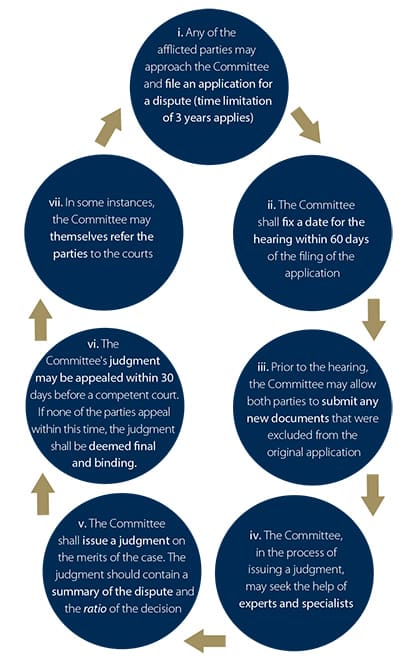

What is the difference indeed between using a commercial agency or a commercial distributor in the United Arab Emirates (UAE)? Principals (foreign companies and brands in this case) face difficult decisions day in and day out to this end. Companies tend to only rely on the tools they are equipped with to help make business decisions; however, in unfamiliar territory, new decision-making tools can expedite the growth of the business substantially and place you ahead of any competition. Every business leader will agree that knowledge is power, therefore, this article will aim to equip businesses, no matter how big or small, with the knowledge on the best route to introduce their products into the UAE with the support from a commercial agent or distributor, whichever suits the toolkit (company) best.
A popular method of conducting business in the United Arab Emirates (UAE) is the formation of commercial arrangements with local and licensed agents or distributors. This is one of the primary methods of conducting business for companies based outside the country, who desires to sell their products in the UAE by foregoing the establishment of subsidiary companies in the region. Instead, companies based in foreign jurisdictions choose to contract with local companies and/or individuals, who may already have a well-established sale network in the country. In the UAE, such agreements can entail parties of two types: local agents and distributors. This section will deal with and analyse the presence of agents in the UAE, thus outlining the various facets of the legislation that governs the functioning for the same.
In theory, such arrangements, which are known as commercial agency agreements, carry far less risk, and require minimal investment from the “principal party” , the foreign commercial party that wishes to conduct “on-shore” business in the UAE (as compared to establishing local subsidiary companies). Commercial agency arrangements allow foreign businesses to leverage the invaluable local knowledge and experience that comes from having local agents, allowing the principal party to benefit from the agent’s pre-existing relationships.
However, whilst commercial agency agreements may seem to be of great advantage to the principal party, an understanding of the intricacies that govern local customs and laws on this matter, would ensure that the parties entering into agency contracts stay aloof of any misunderstandings or complications.
UAE Legislation on Agency Law
In the UAE, commercial agencies are governed by the Federal Law Number 18 of 1981 concerning “Organizing Trade Agencies” (as amended by Federal Law Number 14 of 1988, Federal Law Number 13 of 2006, and Federal Law Number 2 of 2010). This law is often simply referred to as the UAE Agency Law.
Article 1 of the UAE Agency Law defines the terms “trade agency”, and “principal” (primary parties to an agency agreement), as follows:
Pursuant to the provisions of the UAE Agency Law, commercial agencies must adhere to the following requirements with regards to their nature, and the nature of the agreement:
Under the UAE Agency Law, the trade agent enjoys a wide range of privileges and legal protections. Once registered, trade agents are greatly protected under UAE laws. The UAE Agency Law provides for the following significant statutory protections for trade agents: -
Of the aforementioned protections, perhaps the most important and contentious provision of the law is article 8, which safeguards the agent against termination. Under this article, the law only allows for termination under ‘material reasons’ . However, noting the limited number of cases in the UAE which have dealt with this matter, the definition of “material reasons” is unclear and vague. The reasons behind this are twofold: (a) most cases pertaining to the termination of contracts in the UAE are settled out of court, and (b) each case is decided independently from one another, and on the basis of its own facts (in most cases, the court assigns an expert to ascertain the facts), thus leading to a system wherein there is effectively no judicial precedent.
However, in most instances, a ‘material reason’ may account for any one of the following: -
As stated earlier, these outlined ‘material reasons’ will not always be applicable without question, as each case is decided on independently. Thus, it would serve foreign companies very well to keep abreast of the functioning of the dispute resolution process pertaining to the UAE Agency Law.
Dispute Resolution on UAE Agency Law: A Unique Process

In the event of any dispute arising out of a commercial agency agreement under the UAE Agency Law, the parties are to first approach the Commercial Agency Committee, established with the Decree Number 3 of 2011, which is applicable in the UAE. The Committee’s primary role is to review any dispute concerned to any and all commercial agencies registered with the MoE. Once a mater is decided upon by the Committee, parties are free to appeal to the courts of competent jurisdiction. The Committee was established with the outlook of instituting a purpose-built judicial body to address agency law disputes, given the proliferation of such agreements in the UAE.
It is important to note that the UAE Agency Law does not provide any special legal recourse in disputes concerning unregistered commercial agency arrangements. Consequently, such disputes would fall outside the scope of the UAE Agency Law, and would instead, most likely, come under the Commercial Transactions Law (Federal Law Number 18 of 1993) (for example, in the cases of distributors).
The flowchart outlined below seeks to elucidate, in a simple manner, the dispute resolution process followed by the Committee:

Case Analysis
A Brief Comparison between Distribution and Agency Agreements
Whilst most foreign businesses opt for the agency route for the establishment of their presence in the UAE, there is another mechanism of agreements that allow for the same. Such agreements termed as distribution agreements, fall on the opposite end of the spectrum for all characteristics pertaining to agency agreements. In almost every aspect, distribution agreements represent a differing outlook on commercial agreements, when contrasted with agency agreements. The following sections of this article will seek to elucidate and outline the attributes of distribution agreements and contrast them with those of agency agreements.
Distribution Agreements vs Agency Agreements
Distribution Agreements
Agency Agreements
Explanation
Distribution agreements are generic and non-specific in nature
Agency contracts are specific and definite in nature
The principal – agency relationship in agency agreements are governed by the UAE Agency Law (Federal Law Number 18 of 1981), under which the agreements are protected, and renewable. This does not apply in the case of distribution agreements. Distribution agreements are governed by the UAE Commercial Transactions Law (Federal Law Number 18 of 1993), which is a law with a wide and general purview.
Distribution agreements do not require the distributor to be a UAE national or a company that is wholly (100%) owned by a UAE national
Agency agreements require that the agent has to be a UAE national or a company that is wholly owned by a UAE national
As established under article 2 of the UAE Agency Law, the agent has to be a UAE national or a company wholly owned by a UAE national. No such restriction is placed on distributors, and in the case of a principal – distributor relationship, the distributor may appoint any party (a free – zone company, an LLC, or any other company that is not 100% owned by a UAE national) as a distributor.
Distribution agreements do not require the distributor to be registered with the UAE Ministry of Economy (MoE)
Agency agreements require the agent to be registered with the UAE MoE
Article 3 of the UAE Agency Law necessitates the registration of agents with the UAE MoE. However, distributors, as long they are based as UAE entities, do not need to register themselves with the MoE.
Distribution agreements may be expressed or implied, i.e., written or non-written
Agency agreements can only be of a written and expressed nature and must be notarized
As specified in Article 4 of the UAE Agency Law, agency agreements have to be written and notarized to gain legitimacy. Distribution agreements can be implied or expressed.
Distribution agreements may grant exclusive, or non – exclusive rights to the sale of the product to the distributor
Agency agreements are always granted the exclusive right of sale to the agent
Under article. 5 of the UAE Agency Law, the agent is granted exclusive rights to sell the principal’s product, and this exclusive right to sell must apply to a defined territory. However, a principal party may appoint multiple distributors in the same area.
Distribution vs Agency
Now that a clear distinction between distributors and agents has been established, a question thus arises, whether an agency is a more preferred means of conducting business for foreign companies in the UAE, or are distribution agreements more prevalent?
Whilst this may be an issue of a subjective nature, agency agreements have long been the preferred route or mechanism for most foreign businesses to grow in the UAE. It is to be noted that agency agreements bode well for foreign businesses that have enjoyed a great reputation and success overseas. Such businesses have often enjoyed a long-standing reputation amongst their customers, and are likely to be of a capital-intensive nature. Such companies have leveraged the deep ties that their agents possess in the region, by virtue of which they have enjoyed great success. Thus, the formation of agency contracts proves fruitful for foreign businesses that seek to grow a large consumer base within the UAE, and have the accordant capital to facilitate the same.
Whilst the majority of such commercial agreements are comprised of agency agreements, distribution agreements also have great utility for smaller companies that wish to enter the UAE market. Take, for example, companies with limited resources and capital, that operate in niche markets and product categories overseas. It would be in the best interests of such companies to employ distributors in the UAE, as it would render their agreements to fall outside the scope of the UAE Agency Law, thereby alleviating concerns of the tight restrictions and statutory protections offered to agents under the law. Thus, distribution agreements in the UAE grant greater influence to the principal party, whereas the opposite case is true for agency agreements.
Intricacies under the UAE Commercial Transactions Law & Dispute Resolution in Distribution Agreements
There are some aspects of the UAE Commercial Transactions Law, which governs distribution agreements in the UAE, which overlap and intersect with the UAE agency law, which would be later analysed in detail with case law. For example, under article 227 of the Commercial Transactions Law, if a distributor is granted the sole and exclusive right of sale of the principal's product in a certain geographic area, it may be considered as an agency, and some elements of the UAE Agency Law may apply. Similar provisions in the Commercial Transactions Law often constitute the basis for contentions and disputes amongst parties in such agreements. For example, inter alia, the most common issue includes the differentiation of distributors from agents.
In the event of such disputes, the question thus arises, as to which laws would govern the dispute resolution process for distribution agreements. In the event of a dispute between the principal party and the distributor, the UAE Commercial Transactions Law would apply (and not the UAE Agency Law). The courts would honour and respect the terms of the distribution agreement, as long it is compliant with the aforementioned law.
With regards to the termination of distribution contracts, there are no statutory restrictions on a principle's/supplier's right to terminate the distribution relationship without cause where the agreement permits it, or when the deal reaches the full contract term. The UAE Civil Transactions Law is the guiding legislation in such matters.
For a clearer understanding of the dispute resolution process with distribution agreements, we turn to case laws.
Case Analysis for Distribution
Conclusion

In conclusion, the process of decision making involves; identifying problems, generating alternatives, choosing an alternative and implementing the decision. Every single step is important as the business targets cannot be achieved without a well-rounded decision process. Thus, this article has sought to summarise and encapsulate the two major avenues for conducting business in the UAE for foreign businesses, in great detail, by covering elements such as, but not limited to, agency law, distribution law, and the dispute resolution processes and practical case law for the same.
With the necessary consideration given to the legal implications within the cases discussed above, the principal will be able to make an informative decision to achieve success for the business. It is vital for any principal to identify all the risks involved and law governing these areas to determine the best option suitable to them.